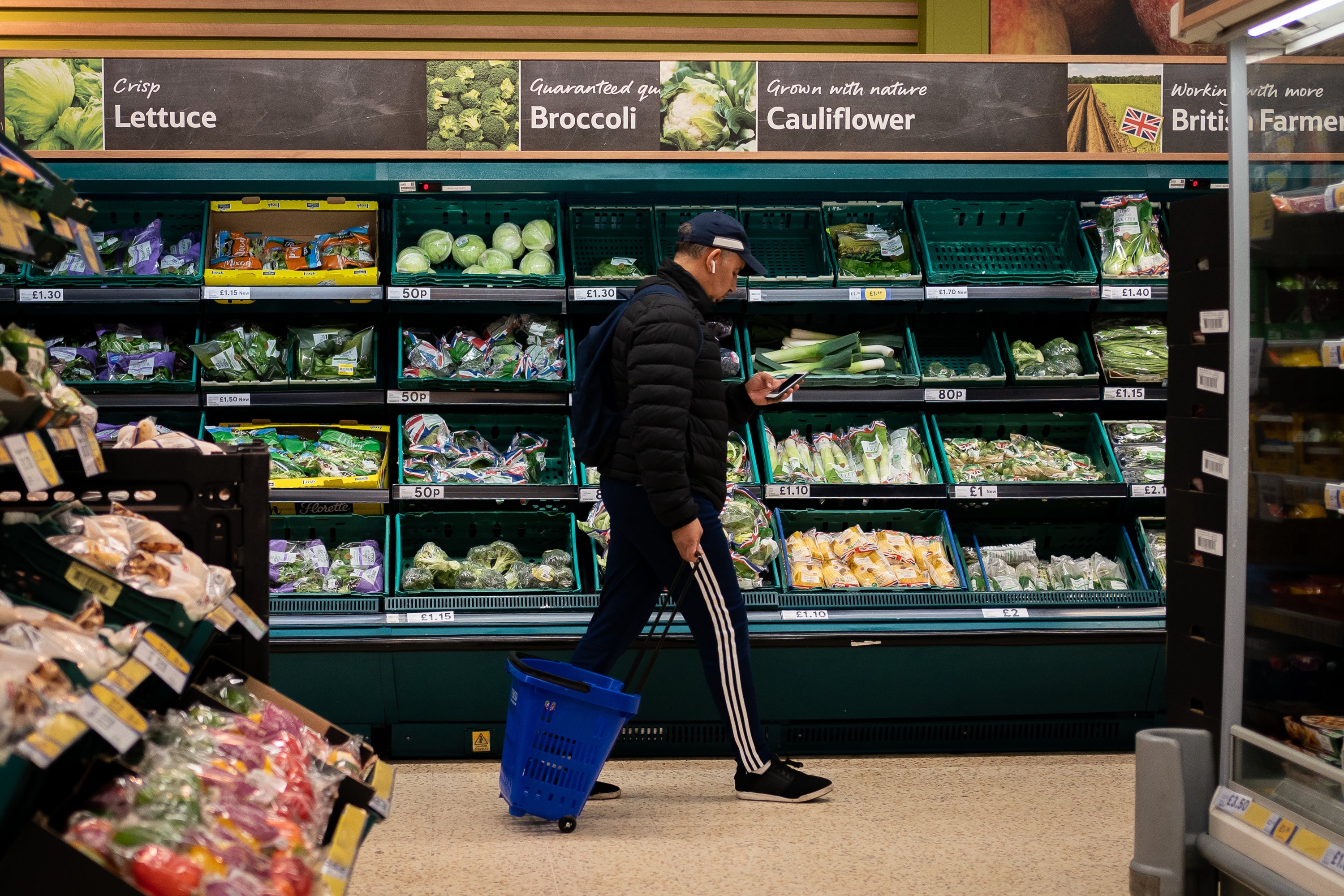Retail sales decline slows after jubilee celebrations boost food stores
It came after a heavier than previously thought slump in retail sales in May, with the ONS revising down its original prediction.

Your support helps us to tell the story
From reproductive rights to climate change to Big Tech, The Independent is on the ground when the story is developing. Whether it's investigating the financials of Elon Musk's pro-Trump PAC or producing our latest documentary, 'The A Word', which shines a light on the American women fighting for reproductive rights, we know how important it is to parse out the facts from the messaging.
At such a critical moment in US history, we need reporters on the ground. Your donation allows us to keep sending journalists to speak to both sides of the story.
The Independent is trusted by Americans across the entire political spectrum. And unlike many other quality news outlets, we choose not to lock Americans out of our reporting and analysis with paywalls. We believe quality journalism should be available to everyone, paid for by those who can afford it.
Your support makes all the difference.The decline in UK retail sales slowed last month as grocery stores were buoyed by bumper demand for food and drink by shoppers wanting to celebrate the Queen’s Platinum Jubilee, according to official figures.
The Office for National Statistics said retail sales fell by 0.1% in June as the boost in the food trade was more than offset by another slump in fuel sales.
A consensus of economists had predicted a 0.2% fall in the latest monthly reading.
It came after a heavier than previously thought slump in retail sales in May, with the ONS revising down its original prediction of a 0.5% decline to 0.8%.
Heather Bovill, ONS deputy director for surveys and economic indicators, said: “After taking account of rising prices, retail sales fell slightly in June and although they remain above their pre-pandemic level, the broader trend is one of decline.
“After a fall in May, food sales picked up due to the jubilee celebrations, but this was the only sector to report an increase.”
Food store sales volumes increased by 3.1%, picking up following a recent downward trend for the sector as more people returned to restaurants and pubs following the easing of pandemic restrictions.
In previous months, retailers had highlighted a decline in volumes because of the increased cost of products and pressure on household bills.
Ms Bovill suggested “concerns around affordability” had more of an impact on demand for clothing and household goods.
Sales at non-food stores dropped by 0.7% for the month, driven by a 4.7% drop in sales volumes at clothing stores, while household goods were down 3.7%.
Fuel sales also saw a particularly sharp drop for the month, falling 4.3% in response to a record jump in petrol prices in June.
The sales decline was the biggest since October last year, when labour shortages and supply constraints led to shortages at forecourts across the UK.
Helen Dickinson, chief executive of the British Retail Consortium (BRC), said: “The cost-of-living crunch caused by record inflation continue to damage consumer confidence and stifle household spending.
“Discretionary spending and particularly bigger purchases were put off as consumers become increasingly concerned about the future.”